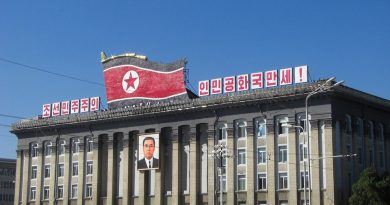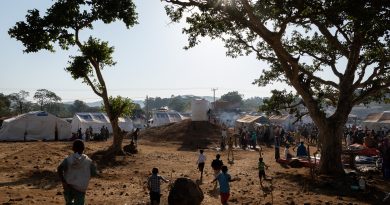Civil War in South Sudan Threatens Genocide
By Anthony Tokarz
Staff Writer
The world’s youngest nation, South Sudan, looks poised to celebrate six and a half years with major concerns; the Anadolu press agency reports that the United Nations warned the current South Sudanese civil war has a strong likelihood of evolving into genocide. The civil war began three years ago when the nation’s President, Salva Kiir, accused his deputy minister, Reik Machar, of plotting a coup against him. Armed factions took to the streets to beat Machar into submission. On November 11th, the UN Special Advisor on the Prevention of Genocide, Adam Dieng, alerted that the Sudanese media helped militias target civilians along ethnic lines. Social media sites prevalent throughout the world served as vehicles for the transmission of the media’s hate speech, thus furthering the polarization and radicalization of South Sudan’s citizenry. The ouster of Machar in July only reignited the violence.
In early November the Kenyan government deported James Gatdet Dak, a high-profile South Sudanese rebel spokesperson supportive of Machar, back to his country of origin. International observers say he is likely to face abuse at the hands of the reigning Kiir government The UN Refugee Agency lamented the move, as well as its own failures to reverse the decision. The UN also suspects that Kenya had expelled Dak because of his support for the firing of a Kenyan general who is responsible for repeated failures in protecting civilians. Kenya has further responded by pulling its 1000 peacekeepers from South Sudan and withdrawing its participation from the peace process. South Sudanese officials arrested Dak as soon as he landed in Juba.
The situation in South Sudan worsens each day. Of the nation’s 11.3 million inhabitants prior to the outbreak of civil war, 1.3 million have fled to refugee camps, and 1.6 million are displaced within the country. As these trends accelerate, the UN estimates that 40% of the remaining population faces famine, according to the Daily Nation. As sanitation and health care infrastructure collapses, the South Sudanese face the simultaneous spread of malaria, measles, guinea worm, cholera, and the parasite kala azar. South Sudanese refugees flee the hazardous conditions, with 6,000 arriving in Uganda in a single day this month. Conditions have grown so dire that 250,000 South Sudanese fled to Darfur, Sudan, where ethnic cleansing and civil war have plagued the city for 14 years. Humanitarian groups have begun withdrawing from the area, and armed groups have taken advantage of the chaos to abduct women and children, ENCA reports.
In Canada, the conflict in South Sudan holds particular relevance. A large community of South Sudanese ex-patriots in Winnipeg, Manitoba have held a peace circle and prayer vigil in the hope of encouraging a settlement. CBC news reports that many of the women involved had fled to Canada following the Second Sudanese Civil War, and some had even returned home before finding themselves forced to flee a second time. “We are fed up,” they say.
Ter Dong Mawien, a presidential advisor on decentralization in South Sudan, looks with fresh hope at the ascendancy of Donald Trump to the US Presidency. “We hope his administration will take a fresh look at the conflict and hopefully bring it to an end,” he told Anadolu Agency. Mawien follows the example of his president, Salva Kiir, who in March called then-candidate Trump to wish him luck and to propose a bilateral effort to restore faith lost during the Obama administration and to halt the escalating cycle of retaliatory killings that has ensnared South Sudan. However, Mary Catherine Phee, US Ambassador to South Sudan, denies the possibility of change, citing strained relations between the two nations since 2013. Yet South Sudanese officials have hope—they supported the Republican candidate after he promised to deal with African dictators because he seemed less likely to continue Obama’s policies, which the South Sudanese dismiss as favoring regime change and prolonging the war.


